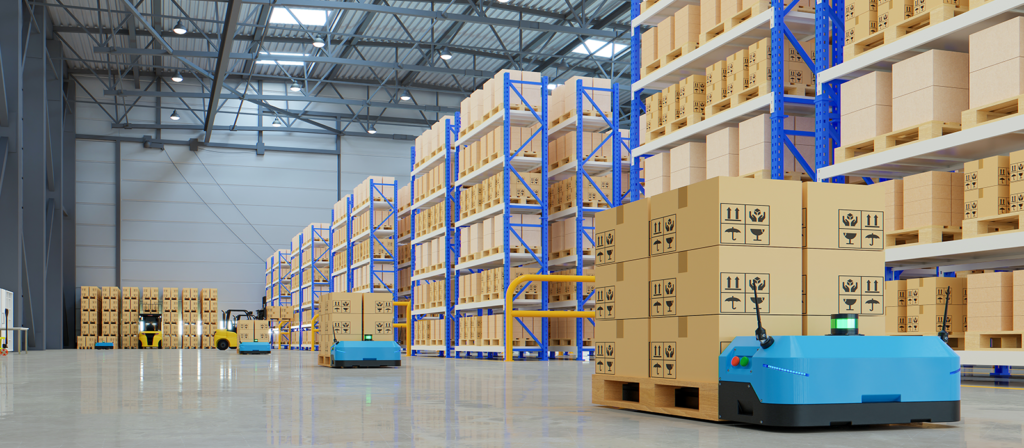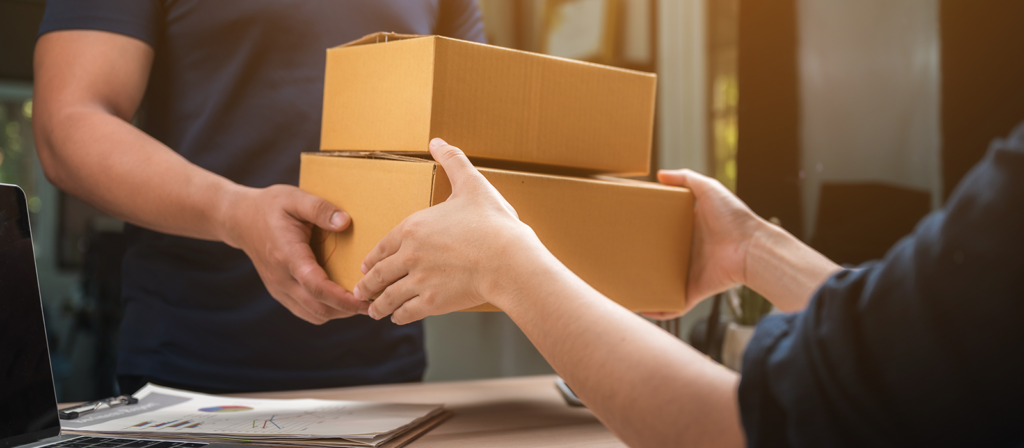
Are you thinking of starting or expanding your business by selling online? Are you considering using fulfillment by Amazon (FBA) for your business but are not sure if it is the right choice for you?
Well, while it has its benefits, there are a number of Amazon FBA alternatives that might be a better fit for your business. In this blog post, we will explore some of these other options and discuss the pros and cons of FBA vs outsourcing your fulfillment needs to a third party logistics (3PL) provider. This information will help you decide which option is best for you, read on to find out more!

What is Fulfillment by Amazon (FBA) and Why is an Alternative Needed?
FBA is a service offered by Amazon that enables sellers to store their products in Amazon’s fulfillment centers and Amazon then handles the shipping of products to customers. The main benefit of using FBA is that it eliminates the need for sellers to coordinate the shipping of their products themselves so they have more time to focus on what matters most – product development and customer engagement!
However, there are a number of FBA alternatives emerging that offer numerous benefits for businesses that FBA does not. Perhaps the most obvious reason these alternatives are increasingly in demand is the associated strict policies and hidden fees associated with FBA.
These hidden costs can add up, particularly for smaller businesses, and can take a big chunk out of any profits. Additionally, FBA can be slower and less reliable than some 3PL services, which can lead to disappointed customers making it a less than ideal choice for your business.
The Case for FBA Alternatives
As previously mentioned, FBA has some significant advantages. For one thing, if you deliver large quantities of product, it can be very cost-effective thanks to Amazon’s economies of scale. And of course, there’s the benefit of Amazon managing your inventory and shipping for you. But there are also some disadvantages to consider – namely, the fact that you have less control over your product and brand when you use FBA.
Pro’s and Con’s of FBA
FBA has become such a popular way to sell because it can save time and resources. You don’t have to worry about packing and shipping orders yourself, and you get access to Amazon’s customer base of millions of shoppers.
On the other hand, there are some pretty significant downsides to using FBA. Namely, it can be more expensive than fulfilling small orders yourself; Amazon charges fulfillment fees which vary depending on the size and weight of your products and the care and attention you may want to give to your individual customers may be lost as FBA operates on such a vast scale.
Let’s Look at Some FBA Alternatives…
Seller Fulfilled Prime (SFP)
A closely related alternative to FBA Is SFP. This is when Amazon allows merchants to associate the Prime badge with their products on Amazon but they ship products to customers themselves without using Amazon’s fulfillment service or warehouses. The merchant is responsible for picking and packing the products for the customer, but can use the Prime label and courier contacts to gain access to a wider audience of potential clients within the Amazon ecosystem.
This is suited well to smaller sellers (who can offer fast free shipping) where FBA fees do not make sense if shipping fewer and slower moving products. It can also suit higher volume sellers who may be already running a shipping and fulfillment operation across other sales channels. Because it is still a ‘Prime’ service Amazon still handles the customer service if there is an issue with the product or service
The main advantage of seller fulfilled prime is that merchants can avoid paying Amazon’s expensive warehousing fees. Seller fulfilled prime also allows merchants to sell on Amazon Prime which gives them a competitive edge.
However, there are a few key disadvantages to SFP that sellers should be aware of before signing up. First, it can be logistically difficult to manage shipping and delivery in-house, especially if you’re fulfilling a large volume of orders. Second, Prime members expect fast and reliable shipping, so you’ll need to have a well-oiled process in place to meet those expectations. There is a minimum number of orders that you must ship per month to maintain your SFP status, which could be challenging if you have a seasonal business or experience sudden changes in order volume. If you’re not confident in your ability to deliver large quantities of product in a restricted time frame then FBA or a 3PL provider is likely the more suitable choice.
Fulfilled by Merchant (FBM)
Similarly, FBM is the process in which the seller of the item can sell products via the Amazon platform but will handle all aspects of fulfilling the order themselves – including inventory, packaging, shipping and tracking. FBM sellers do not have the advantage of selling under the Prime badge. Merchants that use the FBM process, keep inventory in their own warehouses and handle shipping themselves. This means, as a seller, you are responsible for sourcing and shipping your orders through an eligible courier which is where 3PL providers come in more handy as they take care of such details for you.
When an order is placed, the merchant uses a courier to ship the product directly to the customer. This delivery method is sometimes called drop shipping. Perhaps the biggest benefit of using FBM is that it eliminates the need for businesses to pay the high Amazon warehousing fees which can be a significant cost savings, particularly for small businesses without economies of scale. Additionally, merchants who use FBM generally have more control over their inventory and can offer a wider range of products.
However, there are a few potential disadvantages of selling products through this method. First, as a seller, you will need to manage couriers and delivery timelines, which can be difficult and time-consuming. Second, FBM sellers are not eligible for Prime shipping benefits. This means your customers may have to pay more for shipping, which could impact your conversion rates. Finally, Amazon requires that FBM sellers maintain high levels of customer satisfaction, or they will penalize them with lower search rankings and visibility. This can make it difficult to compete with other sellers who are using the FBA or SFP alternatives as discussed above.

Amazon Fulfillment Services by 3PL Providers
An entirely different alternative to the Amazon associated fulfillment methods discussed above is to outsource your fulfillment needs to a 3PL Provider such as James & James Fulfillment (J&J) who can offer you a variety of services, including order management, inventory management, kitting and assembly, shipping and delivery, and even customer service.
While most 3PL providers operate on a slightly smaller scale to Amazon, they still have many years of experience fulfilling all kinds of orders and will be able to meet your fulfillment needs to the same if not higher standard than Amazon.
The Advantages and Disadvantages of Cutting Amazon Out the Loop and Using 3PL Directly.
There are several advantages to cutting Amazon out of the loop and using a 3PL directly. By working with a fulfillment provider like J&J, you get the benefit of:
- A dedicated courier who understands your needs and can be quickly mobilized for delivery.
- Reduced shipping costs, as you’re not paying Amazon’s high fees.
- Increased control and transparency over your inventory and order fulfillment process.
- Expertise in order fulfillment and shipping that Amazon can’t match.
Another advantage of using a 3PL provider is that they offer detailed tracking information so you can keep tabs on your packages every step of the way. This helps ensure that your products reach their destination in a timely manner and without any damage. If there are any issues with your product’s arrival time or condition, they even include customer service and returns management too. What’s not to love?
Final Thoughts
So, what’s the verdict? Is Amazon FBA still the best fulfillment option for online sellers? The answer is… no. While it may be tempting to stick with what you know and keep using Amazon FBA, there are perhaps more cost-effective and efficient alternatives available. If you’re looking for a fulfillment partner that can cover all of your fulfillment needs and still offer you great value for your money, James and James are here to help. We provide tailored solutions to meet the specific needs of our clients, so contact us today to learn more about how we can help take your business to the next level!
FAQ’s
Can I Sell on Amazon without Using FBA?
Yes, as mentioned above, you can sell on Amazon without using FBA. However, there are some important things to keep in mind if you decide to go this route. First, you’ll need to be familiar with Amazon’s Seller Central interface and how to create listings. You’ll also need to handle customer service inquiries, returns, and other order-related tasks on your own. This can be a lot of work, so it’s important to make sure you’re well-prepared for it before deciding to go solo.
Additionally, you’ll need to invest in shipping supplies and shipping methods in order to ensure that your products arrive at their destination safely and on time. This can be a costly endeavor, so make sure you have the appropriate funds and resources at your disposal before committing to fulfilling orders in-house.
What is the Alternative to FBA for Multi Channel Sellers?
If you’re a multichannel seller looking for an alternative to FBA, there are a few options available to you. You could choose to fulfill orders yourself, either from your own warehouse or by using a fulfillment center. Or, you could use a third-party logistics provider (3PL) who can handle fulfillment for you.
Which option is best for you will depend on a number of factors, including your order volume, average order value, shipping costs, and more. There’s no one-size-fits-all answer so make sure to explore the options above and make a choice based on your personal needs and preferences.
What is Third Party Logistics?
Businesses that provide outsourced logistics services are known as third party logistics (3PL) providers. 3PLs manage the transportation and storage of goods for their clients, often acting as an intermediary between the client and various transportation carriers.
The benefits of using a 3PL provider include access to a larger network of carriers, economies of scale, improved efficiency and reduced costs. businesses that rely on 3PLs for their logistical needs can focus on their core competencies, which allows them to grow more quickly and achieve greater profitability.
Do 3PL Companies Manage Stock?
It really depends on the 3PL company and what services they offer. Some 3PLs only manage transportation and logistics, while others may also offer warehousing and inventory management services. It’s important to ask a potential 3PL about their capabilities and experience in order to determine if they can meet your needs. James and James Fulfillment manage all aspects of warehousing and distribution making them a fantastic option for all of your fulfillment needs.
How Does 3PL Work?
Third party logistics work by allowing companies to outsource the management and operation of their logistics department. This can include tasks such as order processing, transportation management, warehouse operations, and even customer service. By outsourcing these functions, companies can free up internal resources to focus on more important aspects of their business.
3PL providers offer a variety of services that can be tailored to meet the specific needs of each company. This includes a wide range of transportation options, comprehensive tracking and reporting capabilities, and 24/7 customer service. By choosing the right 3pl provider, companies can enjoy a seamless transportation and distribution network that is able to handle any size order or shipment.
Keep up with the latest Amazon and Walmart news updates and subscribe to our BellaVix newsletter 👇👇👇
